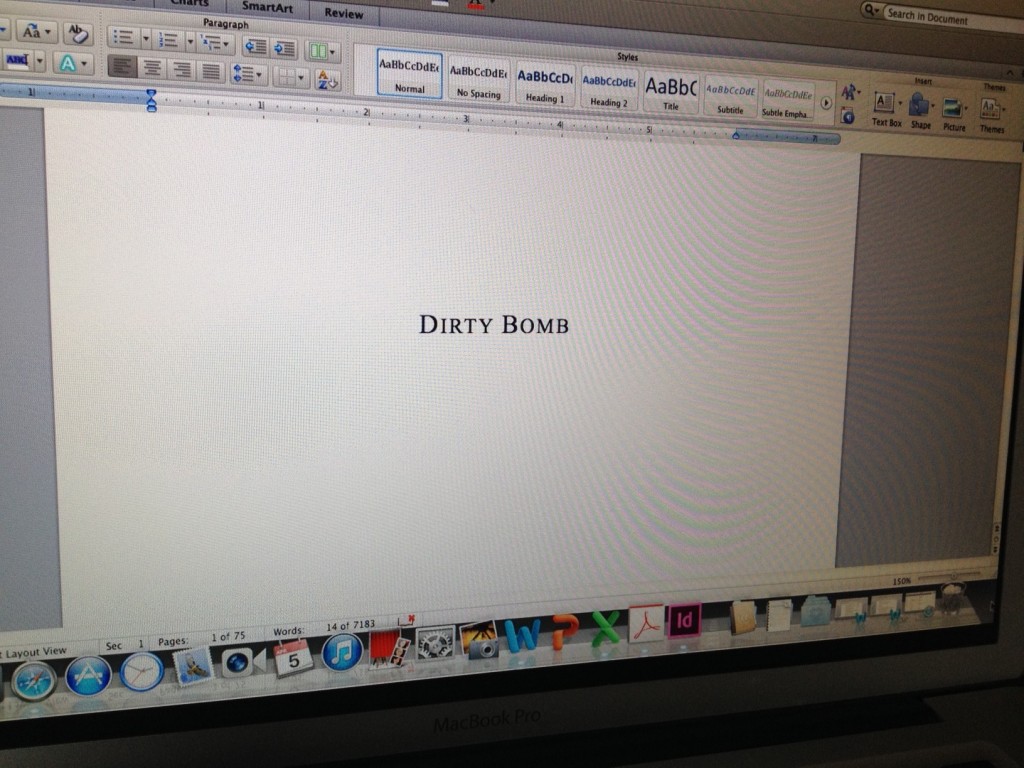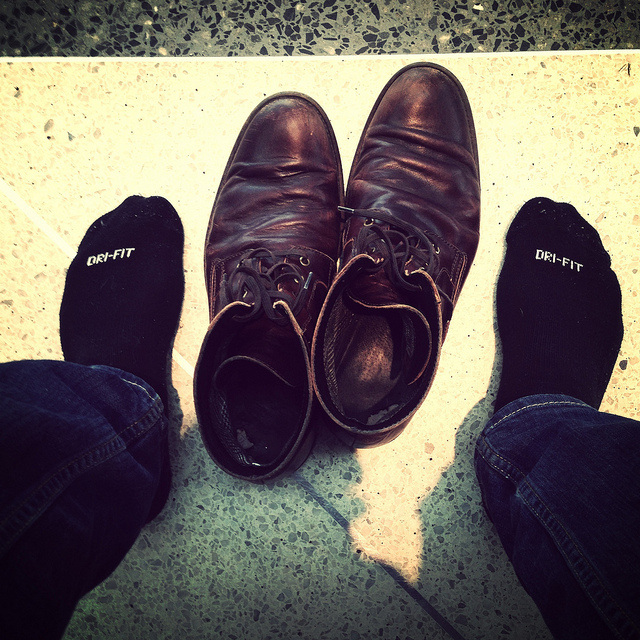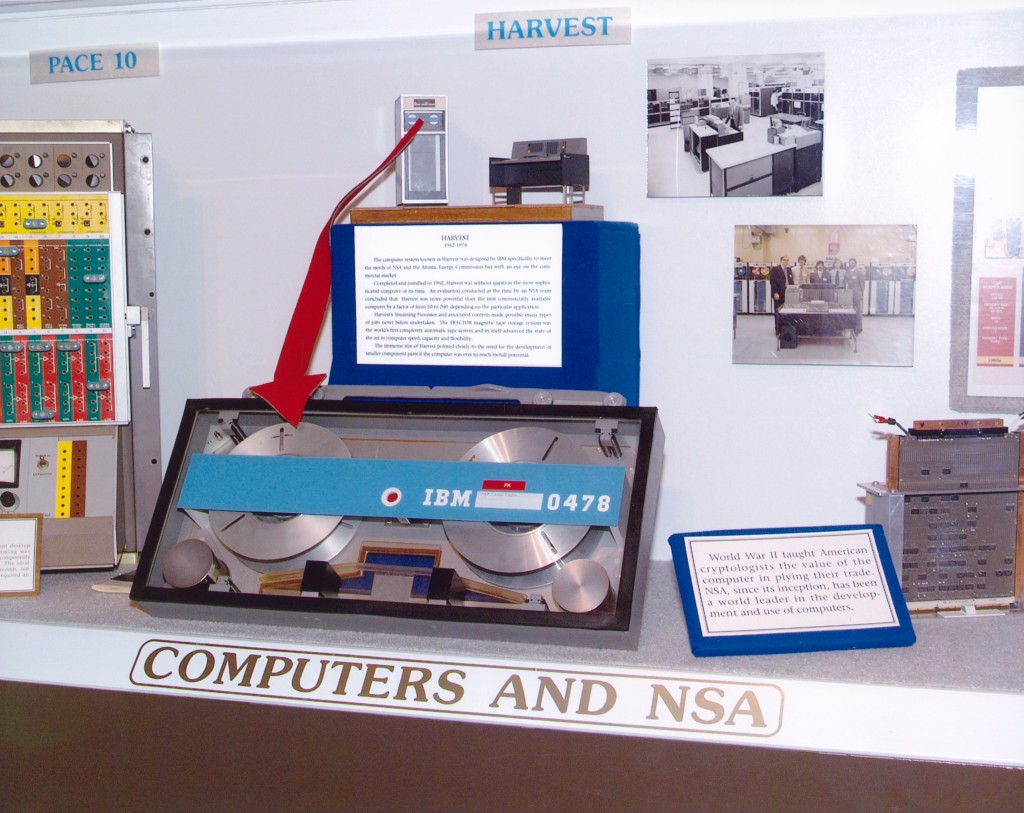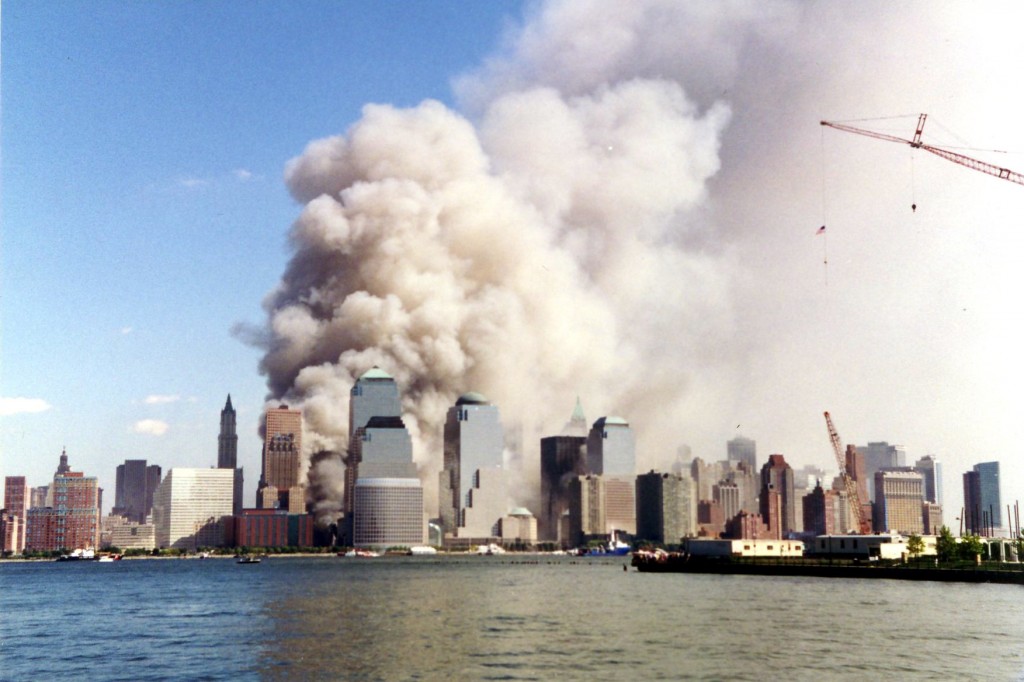A while back I was on one of those long plane trips that begins at sunrise in the west and somehow ends at sunset in the Midwest. With hours to go in my first flight, I decided to pass the time by doing some revisions to a manuscript I was working on. I propped my laptop on the seatback tray. When I opened the document, the book’s tentative title popped up on the screen in 18-point font:
I was in an aisle seat and knew a few people would have a clear view of this, just as I had a good look at Fast and Furious 6 playing on the tablet of the teenager across the aisle and a seat in front of me. In this age of shoe bombers and reinforced cockpit doors, I knew seeing the word “bomb” on a stranger’s computer screen was liable to make a person uneasy, so I scrolled quickly past the title page, and even changed the file name from “dirty bomb_7” to “manuscript,” so the offending words would appear at the top of my screen.
The phrase, “war on terror,” which the Bush administration proudly used to describe their various military operations around the world, has always irked me. I realize “War on Islamic Fundamentalist Radicals And Another Country We Sort of Feel Like Invading” doesn’t exactly roll off the tongue, but “terror” is an emotion, and you can’t bomb an emotion.
terror
noun [C/U] /ˈter·ər/
1 : a state of intense fear
Of course, you can manipulate emotions with language, something the last two administrations have worked very hard to do. Terrorism is actually a very small problem, of course—your chances of getting killed by terrorists are about 20 million to one. But terror, the kind peddled by the U.S. government (to keep us compliant) and by the news media (to keep us tuned in), may be the defining problem of our age. Terrorism is a rare occurrence, but terror is now a way of life, and the more terrified we become, the more likely we are to accept all kinds of nefarious behavior by the government—torture, drone strikes, phone tapping . . .
While I was writing the poems in Dirty Bomb (and long before I got on that airplane) I was thinking very consciously about how the deluge of terror pouring through our television and computer screens—the endless loops of a planes slamming into the towers, of dark men in in balaclavas lugging RPGs through the desert—is affecting our day-to-day existence. Our love lives, friendships, relationships with our children.
Early on in this book project, I came across this list [http://www.geekosystem.com/dhs-list-of-buzzwords/] and realized a lot of these words were already turning up in my writing. My poems—even the ones about relationships or children or aging—had been infected with the language of terror. Once I noticed, I decided to cultivate this trend. I wanted to build a language bomb, and imagined my writing racing through the computers of various spy agencies as my poems made their way out in the world.
Since I have sent this manuscript to various people as an email attachment, and since we now know the NSA is collecting all of our electronic correspondence, I’m quite sure my book manuscript is sitting in some government database right now, probably tagged with a red flag by whatever software they use to search for watchwords. I like to imagine some young spies (does the NSA have interns?) sipping a bad cups of coffee and reading through the poems, looking for coded messages in the text. I hope they find them.




